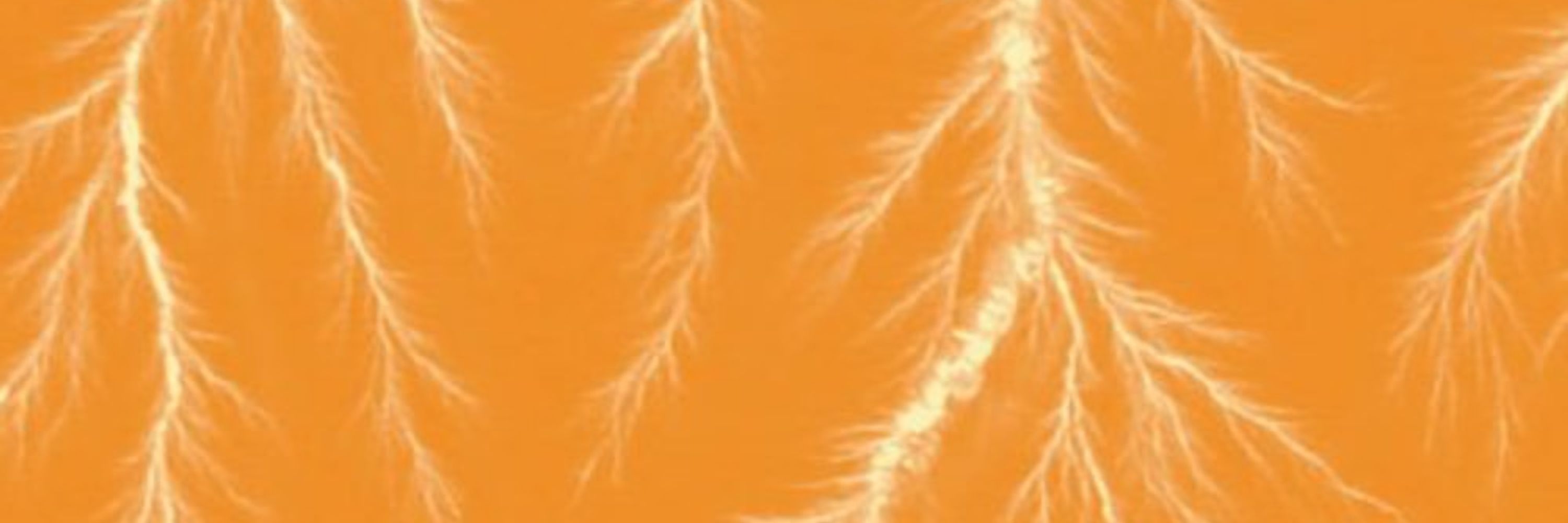
Historical Studies in the Natural Sciences
@hsnatsci.bsky.social
HSNS is an academic journal devoted to the history of science. Our papers reveal the "diverse histories and practices of technical, professional, and vernacular knowledge as they have developed since the 18th century." https://online.ucpress.edu/hsns
Weart's work shows how funding in the cold war increased government support for science deemed important for security and international collaboration, but the Regan era politicized wide swaths of research- especially climate science- drying up support and reducing funds. History.Exhausting.Amirite?
March 17, 2025 at 1:23 PM
Weart's work shows how funding in the cold war increased government support for science deemed important for security and international collaboration, but the Regan era politicized wide swaths of research- especially climate science- drying up support and reducing funds. History.Exhausting.Amirite?
Weart's article details the link between funding and politicization of climate change, tracking his funding sources from its small start during the International Geophysical Year to funding by NOAA, the Department of Energy, NSF, and the USGS between 1977 and 1980. But that bubble also burst.
March 17, 2025 at 1:23 PM
Weart's article details the link between funding and politicization of climate change, tracking his funding sources from its small start during the International Geophysical Year to funding by NOAA, the Department of Energy, NSF, and the USGS between 1977 and 1980. But that bubble also burst.
Find all these articles here, plus Shin and DeVorkin's article on the half century long battle to develop a national planetarium for the US. Taken together, this Volume speaks heavily to the politics of science in the 20th century. online.ucpress.edu/hsns/issue/5...
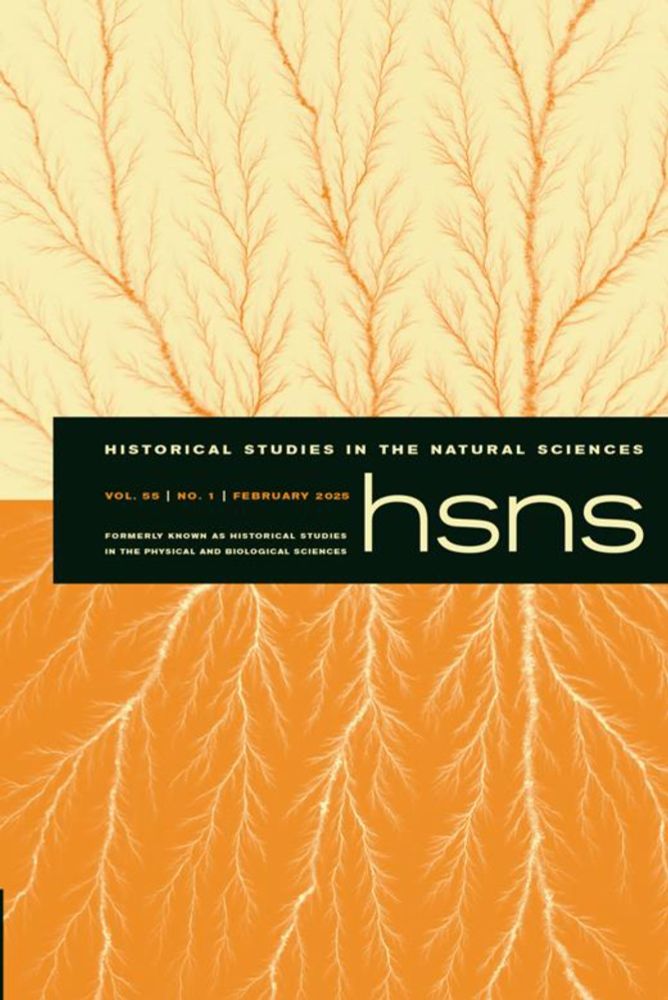
Volume 55 Issue 1 | Historical Studies in the Natural Sciences | University of California Press
online.ucpress.edu
March 10, 2025 at 3:21 PM
Find all these articles here, plus Shin and DeVorkin's article on the half century long battle to develop a national planetarium for the US. Taken together, this Volume speaks heavily to the politics of science in the 20th century. online.ucpress.edu/hsns/issue/5...
Using these papers, the authors show how Wilson positioned his science in the political climate of the Cold War, casting his critics as enemies of both science and the State. Other essays examine the impact of Sociobiology on ecological thought and its legacy today.
March 10, 2025 at 3:21 PM
Using these papers, the authors show how Wilson positioned his science in the political climate of the Cold War, casting his critics as enemies of both science and the State. Other essays examine the impact of Sociobiology on ecological thought and its legacy today.
Each essay examines the debates and legacy of E.O. Wilson's publication. This collection of essays is particularly rich, as many of the scholars used Wilson's recently opened papers at the Library of Congress.
March 10, 2025 at 3:21 PM
Each essay examines the debates and legacy of E.O. Wilson's publication. This collection of essays is particularly rich, as many of the scholars used Wilson's recently opened papers at the Library of Congress.
Reposted by Historical Studies in the Natural Sciences
Thought you'd find this useful @nzjh.bsky.social @conteurohistory.bsky.social @euroreviewhistory.bsky.social @isisjournal.bsky.social @asia-pacific-echr.bsky.social @enghistrev.bsky.social @hsnatsci.bsky.social @jmormonhist.bsky.social @jofvictculture.bsky.social @jbritishstudies.bsky.social
January 28, 2025 at 10:22 PM
Thought you'd find this useful @nzjh.bsky.social @conteurohistory.bsky.social @euroreviewhistory.bsky.social @isisjournal.bsky.social @asia-pacific-echr.bsky.social @enghistrev.bsky.social @hsnatsci.bsky.social @jmormonhist.bsky.social @jofvictculture.bsky.social @jbritishstudies.bsky.social
All of these essays are worth the read. I do believe that reading them together will help you think clearly about AI in the academy and your role in shaping that role. online.ucpress.edu/hsns/issue/5...
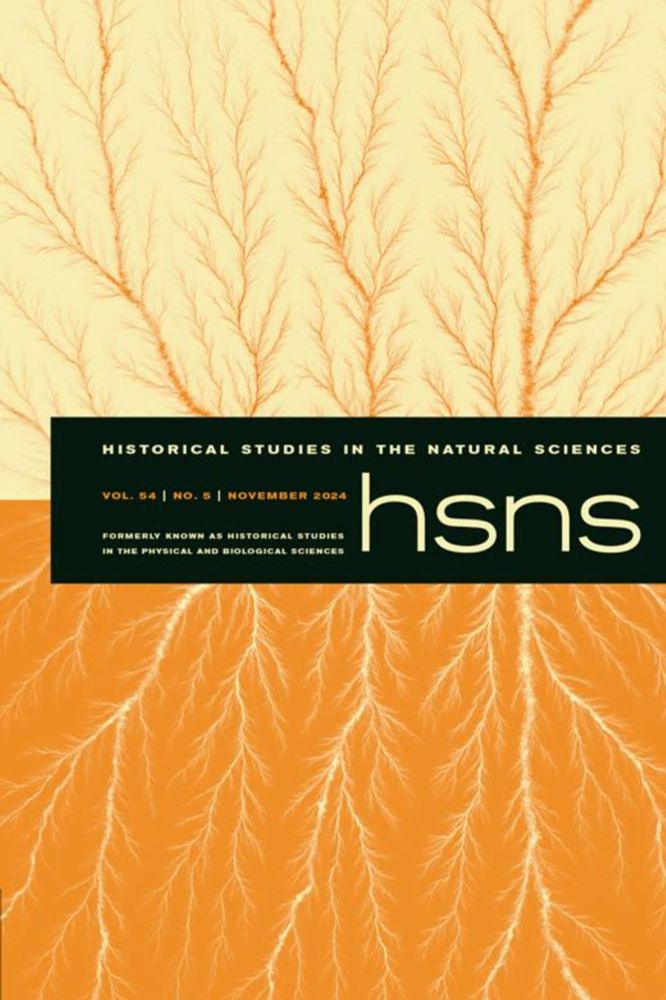
Volume 54 Issue 5 | Historical Studies in the Natural Sciences | University of California Press
online.ucpress.edu
January 14, 2025 at 9:08 PM
All of these essays are worth the read. I do believe that reading them together will help you think clearly about AI in the academy and your role in shaping that role. online.ucpress.edu/hsns/issue/5...
And Jennifer Robertson suggests new forms of fieldwork that will help scholars better understand and process the rapid changes in robotics and automated life in the 21st century. Joseph Martin, the editor of the journal, finishes with an essay that reflects on the role of editors in this new world.
January 14, 2025 at 9:08 PM
And Jennifer Robertson suggests new forms of fieldwork that will help scholars better understand and process the rapid changes in robotics and automated life in the 21st century. Joseph Martin, the editor of the journal, finishes with an essay that reflects on the role of editors in this new world.
Damien P. Williams suggests that issues with AI "scholarship" intertwines with academic publish or perish culture- pushing scholars to accept the slight of hand that interprets publishing with knowledge production. Instead, he suggests we interrogate what knowledge means outside of this system.
January 14, 2025 at 9:08 PM
Damien P. Williams suggests that issues with AI "scholarship" intertwines with academic publish or perish culture- pushing scholars to accept the slight of hand that interprets publishing with knowledge production. Instead, he suggests we interrogate what knowledge means outside of this system.
" In the face of such a profound threat from AI, researchers should take a leaf out of the Luddites’ playbook by intervening and organizing wherever possible to prevent automation imposed by commercial publishers and analytics companies."
January 14, 2025 at 9:08 PM
" In the face of such a profound threat from AI, researchers should take a leaf out of the Luddites’ playbook by intervening and organizing wherever possible to prevent automation imposed by commercial publishers and analytics companies."
Check out Alex Csiszar, Nicole Howard, and Samuel A. Moore's essays. They historicize scientific publication, quick production of written materials, and the development of automation. Moore uses Hobsbawm's historical account of Luddites to call for an intervention.
January 14, 2025 at 9:08 PM
Check out Alex Csiszar, Nicole Howard, and Samuel A. Moore's essays. They historicize scientific publication, quick production of written materials, and the development of automation. Moore uses Hobsbawm's historical account of Luddites to call for an intervention.
Melinda Baldwin and Brigid Vance have put together 6 short essays examining AI in academic publishing through a historical lens. And it is calming me down!
January 14, 2025 at 9:08 PM
Melinda Baldwin and Brigid Vance have put together 6 short essays examining AI in academic publishing through a historical lens. And it is calming me down!
read about it here: online.ucpress.edu/hsns/article...

When Scientists Disagree: Carl von Heß, Karl von Frisch, and the Study of Controversies
In science studies, history and philosophy of science, and history of science, scientific controversies are supposed to reveal how science works. Controversy, in this sense, is not primarily a researc...
online.ucpress.edu
December 5, 2024 at 8:01 PM
read about it here: online.ucpress.edu/hsns/article...
Hoffman says that "it can be said that controversies are often treated as similar to natural experiments, which, with no planned intervention, reveal elementary attributes of scientific knowledge production."
December 5, 2024 at 8:01 PM
Hoffman says that "it can be said that controversies are often treated as similar to natural experiments, which, with no planned intervention, reveal elementary attributes of scientific knowledge production."
Our next paper speaking to this is Jaehwan Hyun's article from September 2019 on the "politics of national identity in South Korea" online.ucpress.edu/hsns/article...
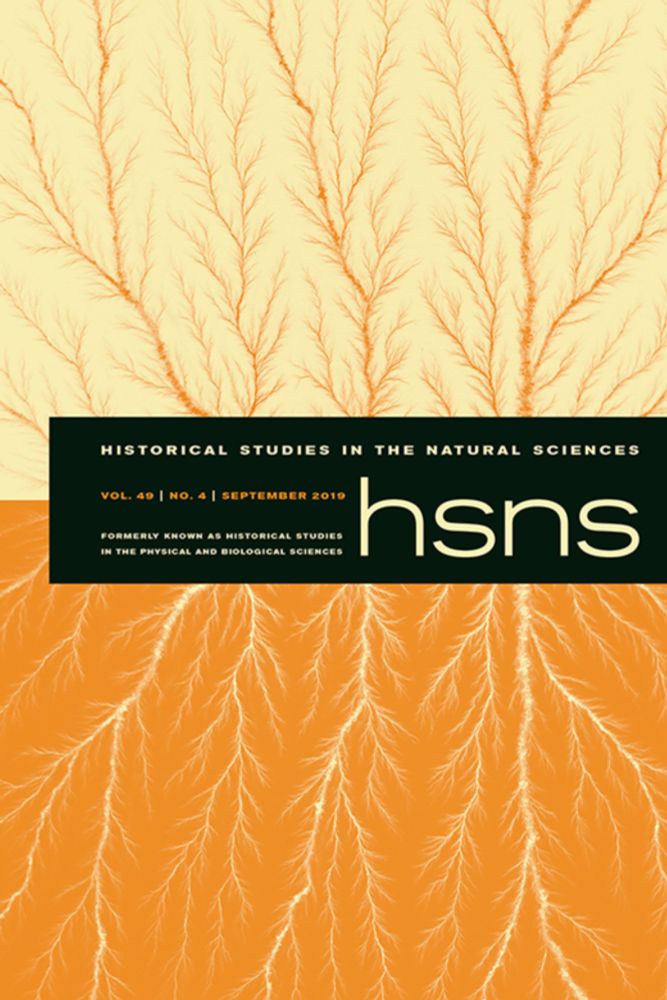
Tracing National Origins, Debating Ethnic Homogeneity: Population Genetics and the Politics of National Identity in South Korea
This article examines the interaction between human population genetics and the reconstruction of national identities and histories. Since the first use of mitochondrial DNA analysis of human origins ...
online.ucpress.edu
November 14, 2024 at 7:27 PM
Our next paper speaking to this is Jaehwan Hyun's article from September 2019 on the "politics of national identity in South Korea" online.ucpress.edu/hsns/article...
The first paper is by Elise Burton from February 2024. Her paper traces the way that cartography shifted as did ideas about race and Turkish identity. online.ucpress.edu/hsns/article...
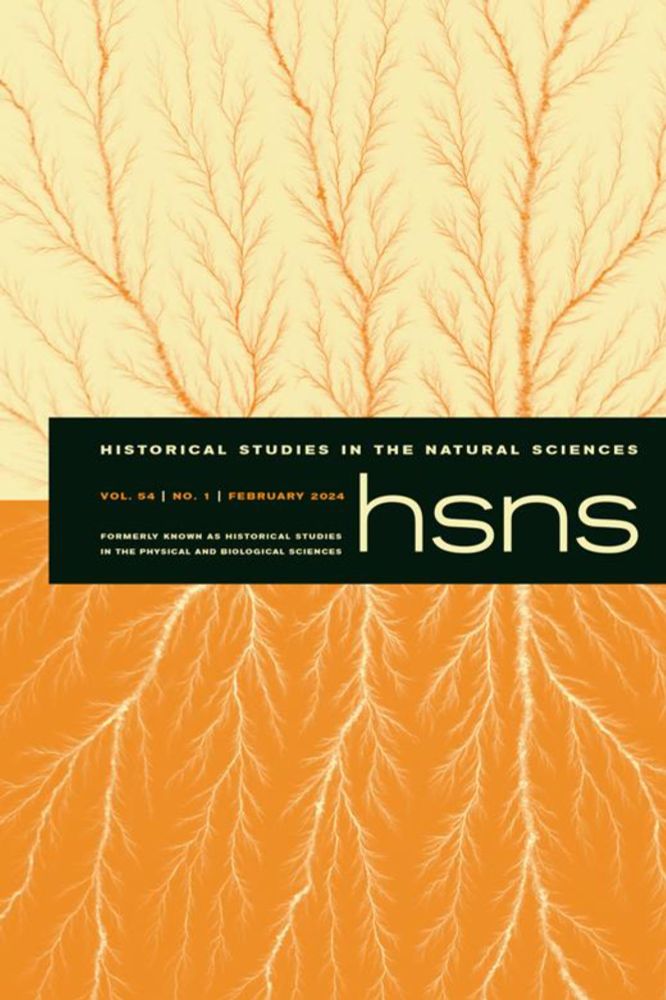
Accidents of Geography: Historicizing Genetic Cartographies of the Middle East
Over the past two decades, human geneticists have substantially embraced the concept of “biogeographical ancestry” to account for the racial, ethnic, and linguistic categories they use to analyze and ...
online.ucpress.edu
November 14, 2024 at 7:27 PM
The first paper is by Elise Burton from February 2024. Her paper traces the way that cartography shifted as did ideas about race and Turkish identity. online.ucpress.edu/hsns/article...
Read the essay here: online.ucpress.edu/hsns/article...
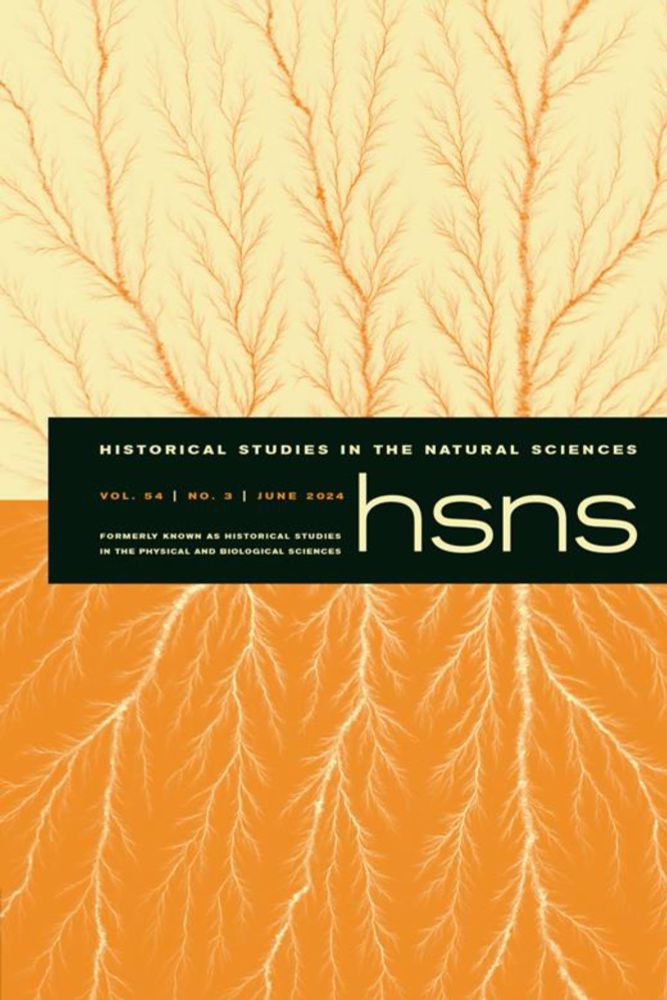
The Black Androids: A Chrestomathy
This article offers some key terms for thinking through the history of the Black Androids, a group of racialized automata, created between the mid–sixteenth century and the late twentieth-century, tha...
online.ucpress.edu
July 9, 2024 at 4:30 PM
Read the essay here: online.ucpress.edu/hsns/article...
This collaborative essay is an amazing example of how scholars are building intellectual communities in the history of science.
@ejonesimhotep
Awa Hanane Diagne Emily Grenon Syeda Hasan Holly K.M. Johnstone
@AlexanderOfford
Neve Ostry Young Sarai Rudder
@ejonesimhotep
Awa Hanane Diagne Emily Grenon Syeda Hasan Holly K.M. Johnstone
@AlexanderOfford
Neve Ostry Young Sarai Rudder
July 9, 2024 at 4:29 PM
This collaborative essay is an amazing example of how scholars are building intellectual communities in the history of science.
@ejonesimhotep
Awa Hanane Diagne Emily Grenon Syeda Hasan Holly K.M. Johnstone
@AlexanderOfford
Neve Ostry Young Sarai Rudder
@ejonesimhotep
Awa Hanane Diagne Emily Grenon Syeda Hasan Holly K.M. Johnstone
@AlexanderOfford
Neve Ostry Young Sarai Rudder

